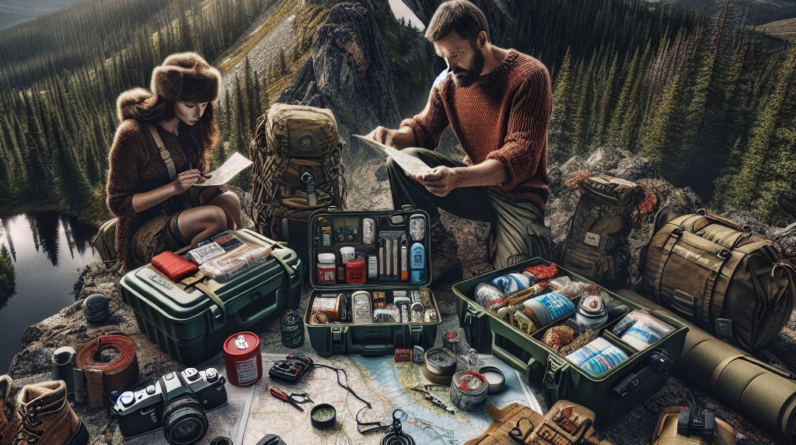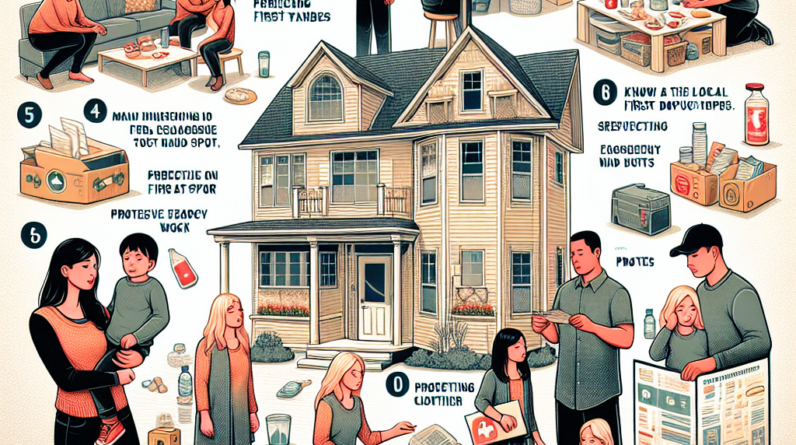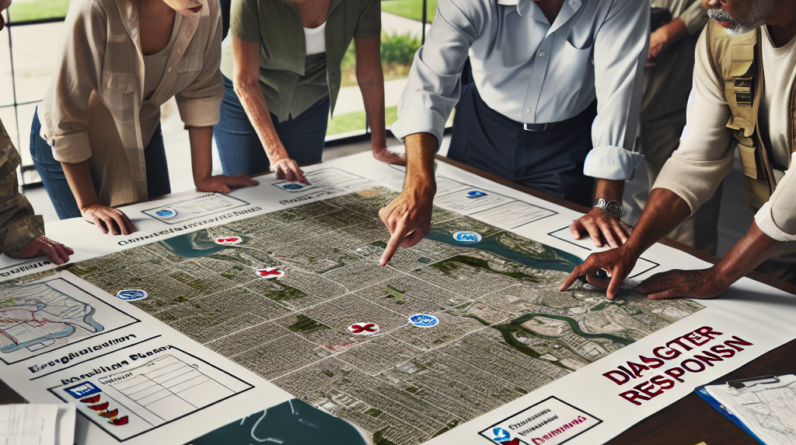
Living remotely brings its own set of challenges and rewards, and being prepared for emergencies is crucial to ensure safety and peace of mind. This comprehensive guide will walk you through understanding your environment, stocking up on essential supplies, establishing robust communication plans, and maintaining your mental health in isolated settings.
Understanding Your Environment
# Assess Your Location
Diving into the specifics of your surroundings is crucial when you reside in remote areas. When I initially relocated to a rural spot, I had little knowledge about local wildlife or climatic conditions. It’s not only about enjoying the picturesque landscapes but also being aware of potential dangers that come with it.
Begin by exploring local resources. Websites, government offices, or conversations with neighbors can provide critical information about hazards like wildfires, floods, or tornadoes. Each area has its unique challenges, and being prepared is essential.
It’s also important to familiarize yourself with the local geography. Check if there are accessible trails, assess the reliability of nearby roads, and consider their condition during adverse weather. Understanding these details is vital for planning your emergency supplies and escape routes.
# Know Common Emergencies
Understanding prevalent emergencies in your area is another crucial step. Spend time researching the types of disasters that could occur and prepare accordingly. It’s often the smaller, more frequent issues that escalate into severe problems.
For instance, if earthquakes are common, you’ll need a robust response plan for when tremors occur. Conversely, if hurricanes are a threat, different preparation strategies are necessary. Customizing your emergency plans to fit local risks will provide significant relief.
Engage with your community for insights on recent emergency trends. Local Facebook groups or community meetings can be invaluable for sharing knowledge and experiences.
# Emergency Supplies
Stocking up on essential supplies is a lesson I learned the hard way when I found myself without necessities during a storm. Compile a list of items tailored to your specific needs—do not cut corners here.
Water is absolutely crucial; store at least a gallon per person per day for at least three days, and consider your pets’ needs as well. Keep a stock of non-perishable food items like canned goods and dried fruits. Adding comfort items such as chocolate can boost morale during difficult times.
Don’t forget tools and a first-aid kit. A reliable flashlight, a multi-tool, and a well-equipped first aid kit are indispensable during emergencies. Organizing these supplies in advance can prevent many difficulties.
Communication Plans
# Stay Connected
In cases of power outages or natural disasters, maintaining communication is key. I’ve experienced the challenge of a dead phone during critical times—it’s a situation you’ll want to avoid.
Have a backup plan, such as solar chargers or portable battery packs for your devices. And remember the reliability of traditional radios; they can be crucial when modern technology fails.
Also, establish strong ties with your neighbors who can provide information and support during emergencies. Being part of a tight-knit community enhances safety and comfort.
# Establish a Contact List
Create and maintain a list of essential contacts including family, friends, and emergency services. I’ve been slowed down by having to search for numbers in an emergency.
Keep a physical copy of this list in your emergency kit. In chaotic situations, it’s easy to forget crucial contacts. Having a well-thought-out list can help you remain calm and organized.
Ensure that your contacts are aware of your living situation and potential emergencies. A network of informed individuals can be a critical part of your safety plan.
# Emergency Drill
Practicing your emergency response is as important as planning. Conduct drills as you would fire drills in a school setting to ensure everyone knows their role during an actual emergency.
Involve family or housemates in these drills. Discuss and practice actions for different scenarios, such as floods or other disasters. You can even introduce elements of a game to make the practice engaging and less daunting. Preparation can significantly ease the stress of real emergencies.
Mental Preparedness
# Recognizing Stressors
Discussing mental health is essential, especially in the isolating environment of remote living. Identifying stress triggers and addressing them proactively can keep you functioning optimally during tough times.
Be mindful of signs of stress or anxiety, and don’t hesitate to discuss your feelings. Establishing a support network, even if remote, is vital. Friends and family can provide comfort and understanding, which is invaluable.
Adopting a structured routine that balances work and relaxation can significantly reduce anxiety. Structuring your day can enhance both productivity and mental wellbeing.
# Developing Coping Strategies
When emergencies strike, having pre-established coping mechanisms can be a lifesaver. Engage in activities that foster peace and joy, such as reading, gardening, or yoga.
Mindfulness practices like meditation or deep breathing exercises can also be powerful tools during overwhelming times. Sometimes, simply stepping outside and appreciating your surroundings can reaffirm the beauty of life.
These strategies can empower you to tackle challenging situations with less distress and more resilience.
# Community Engagement
Integrating into your local community can significantly enhance your sense of belonging and security. Participating in local events or volunteer efforts helps build connections and trust within the community.
Sharing experiences, coping strategies, and even humor can uplift spirits and strengthen communal ties during difficult times. Engaging actively with your neighbors and community members can transform challenges into shared experiences.
Final Thoughts
Being thoroughly prepared for emergencies in remote living doesn’t equate to living in fear, but rather equips you to handle unforeseen situations with confidence and calm. With a comprehensive plan, a supportive community, and a dash of humor, you can enjoy life regardless of your geographical location.
Take it one step at a time—from understanding your environment to maintaining your mental health, each aspect is crucial. So, engage actively, prepare diligently, and your future self will surely be grateful.
FAQ
# 1. Why is it important to assess my location for emergency preparedness?
Understanding your environment allows you to identify local hazards and tailor your emergency plan effectively, ensuring readiness for any situation.
# 2. What should I include in my emergency supply kit?
Your emergency kit should contain water, non-perishable food, first-aid supplies, tools, and necessary medications. Including comfort items like snacks or games can also be beneficial.
# 3. How can I prepare mentally for emergencies?
Recognize potential stressors and develop coping mechanisms, such as engaging in enjoyable activities or practicing mindfulness. Building a supportive community network can also mitigate feelings of isolation.
# 4. What’s a good way to engage with my community for preparedness?
Participating in community events, volunteering, or initiating conversations with neighbors are excellent ways to build a supportive network focused on preparedness.
# 5. Should I practice my emergency plan with others?
Definitely! Practicing with those you live with ensures that everyone knows their role during an emergency, facilitating a calm and effective response.


